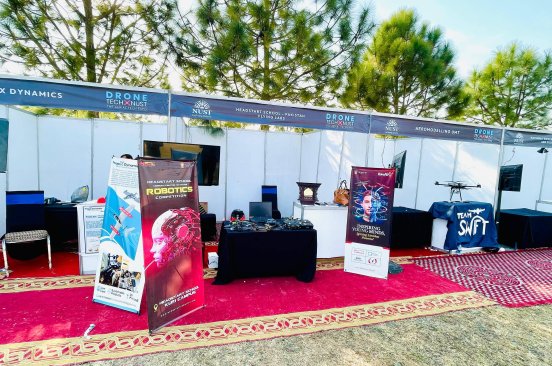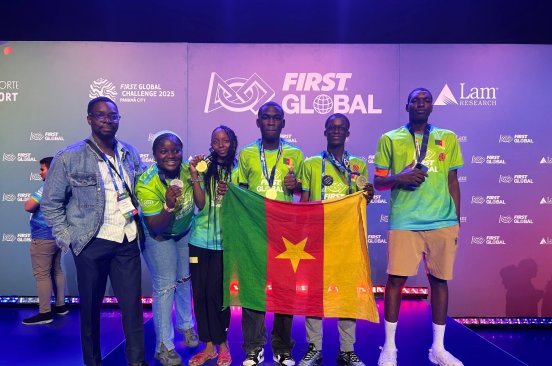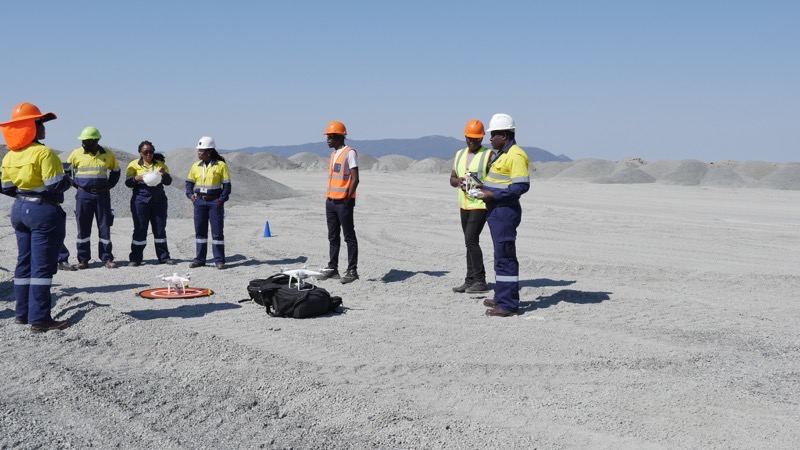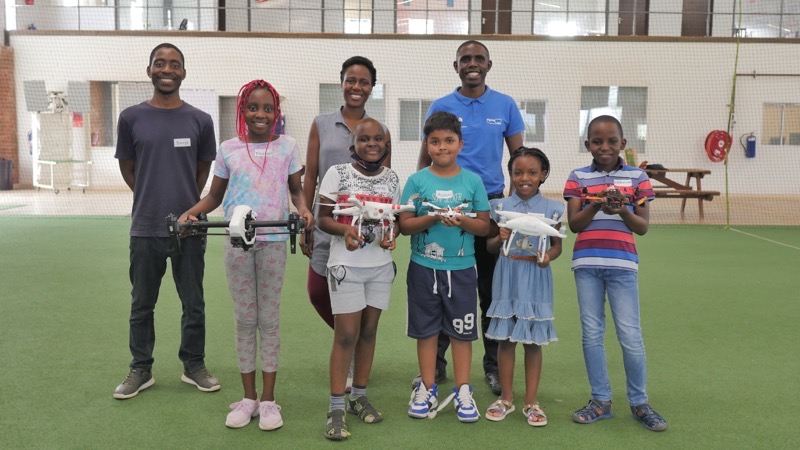
Local Expertise, Global Community: In Conversation with Zimbabwe Flying Labs
Tawanda Chihambakwe talks about the journey of Zimbabwe Flying Labs, what inspired him to join the Network, and tips for new Flying Labs.
June 1st, 2022
Each installment of the "Local Expertise, Global Community" series will feature conversations between Flying Labs and WeRobotics' Coordination team, exploring the history of their membership within the Network, growth, challenges, and what needs to be done to accelerate the acceptance of drones and robotics as tools for solving social problems in the Global South.
In this edition, we sit down with Tawanda from Zimbabwe Flying Labs to talk about the journey of his Flying Labs. He reflects on what inspired him to join the Network and shares tips to help potential New Flying Labs.
(The interview below was edited for length and clarity)
Q: What's your name, and tell us when you joined the Flying Labs Network?
A: I'm Tawanda Chihambakwe, and we joined the Network in October 2020.
What inspired you to become part of the Flying Labs Network, and what were your expectations and aspirations for the Network?
Seeing the work of other Flying Labs across Africa and around the world played a key role in our decision to join the Network. Before joining the Network, we were already working in the commercial drone industry for several years. When we tried to respond to a disaster situation in our country, we quickly realized we were out of our depth regarding how to deploy the use of drones effectively in such a situation. We sought ways to serve our local communities better and, through research, found out about the Flying Labs Network. We believed that joining the Network would help us help the local communities and ultimately save people's lives in disaster situations.
Zimbabwe Flying Labs has grown incredibly strong in a very short time, over just one year. What do you attribute your growth spurt to?
Zimbabwe Flying Labs has a good team of diverse individuals committed to serving Zimbabwe's people through capacity building, practical empowerment, and education. We have decided to work on a few key areas, focusing on education and training; this has helped us grow our influence locally. We are also fortunate to have extensive experience with drones, having operated commercially for three years before joining the Network, to bring that experience into our work as Zimbabwe Flying Labs.
Indeed, with great success comes challenges; what kind have you encountered working in this field? How did you overcome these challenges?
The main challenges we have faced are more regulatory control and getting government permission to operate. We resolve these issues by ensuring that all our operations are done under the legal framework in Zimbabwe. We are also actively engaging the different government authorities to get them to understand who we are and the purpose of our existence as Zimbabwe Flying Labs.
How is Zimbabwe Flying Labs contributing to local communities and impact?
We have a strong focus on education and training. We have developed our Drones in STEM education program to teach young learners about drones, industry career opportunities, and practical, transferable technical skills. Zimbabwe Flying Labs has also launched a training division certified by the Civil Aviation Authority of Zimbabwe to train and license Drone Pilots. This is expected to formalize drone operations and ensure safe and ethical use. We have also been involved in environmental management projects to help gather data and insights for conservation.
In the Global South, using Drones and Robotics to solve social problems is not so popular. What would you suggest is needed to accelerate growth?
The application of Drones and Robotics is increasing rapidly in the Global South. However, the growth is being restricted by several issues and regulatory policies on the use of drones and high barriers to entry into the industry due to the high cost of importing drones. This is coupled with the lack of a formalized local drone industry with support services like spare parts and repair centres. To add to this is limited local expertise on Drone and Robotics use case applications and how to turn data gathered by drones into action. For the Drone industry to grow in the Global South, it is essential to have buy-in and support from local government authorities, including regulators overseeing Civil Aviation. We also need policies that promote the development of the local drone industry, including access to finance from financial institutions and tax reductions on drone imports. Overall, we need professionalism in the drone industry, where the local service providers have adequate knowledge and training to deliver the total value of what the technology can do.
How can drones and data contribute to changing mindsets (on innovation and technology) in Zimbabwe?
When applied fully, Drones & Data can unlock innovation and create new businesses and job opportunities for people in Zimbabwe. We have seen that in areas like Agriculture, where we are deploying Crop Spraying drones, the mindset shift with farmers has been positive, moving them from skepticism to realizing that embracing technology like drones enables them to spend less time and less money to deliver better yields.
Any tips for potential new Flying Labs?
For new and growing Flying Labs, I recommend focusing on solving local challenges in 1 or 2 areas/sectors where they can establish a sustainable project or income-generating initiative. This will give them a base and a sound footing in the market to grow. Take a long-term view. It takes a while for the people we serve to understand the value of Flying Labs; patience and persistence are key!
Thank you, Tawanda, for chatting with us. To stay updated with their activities, follow them on LinkedIn.
Category(s)
Recent Articles
View All »

Team Cameroon's Road to Victory at the First Global Robotics Competition 2025


